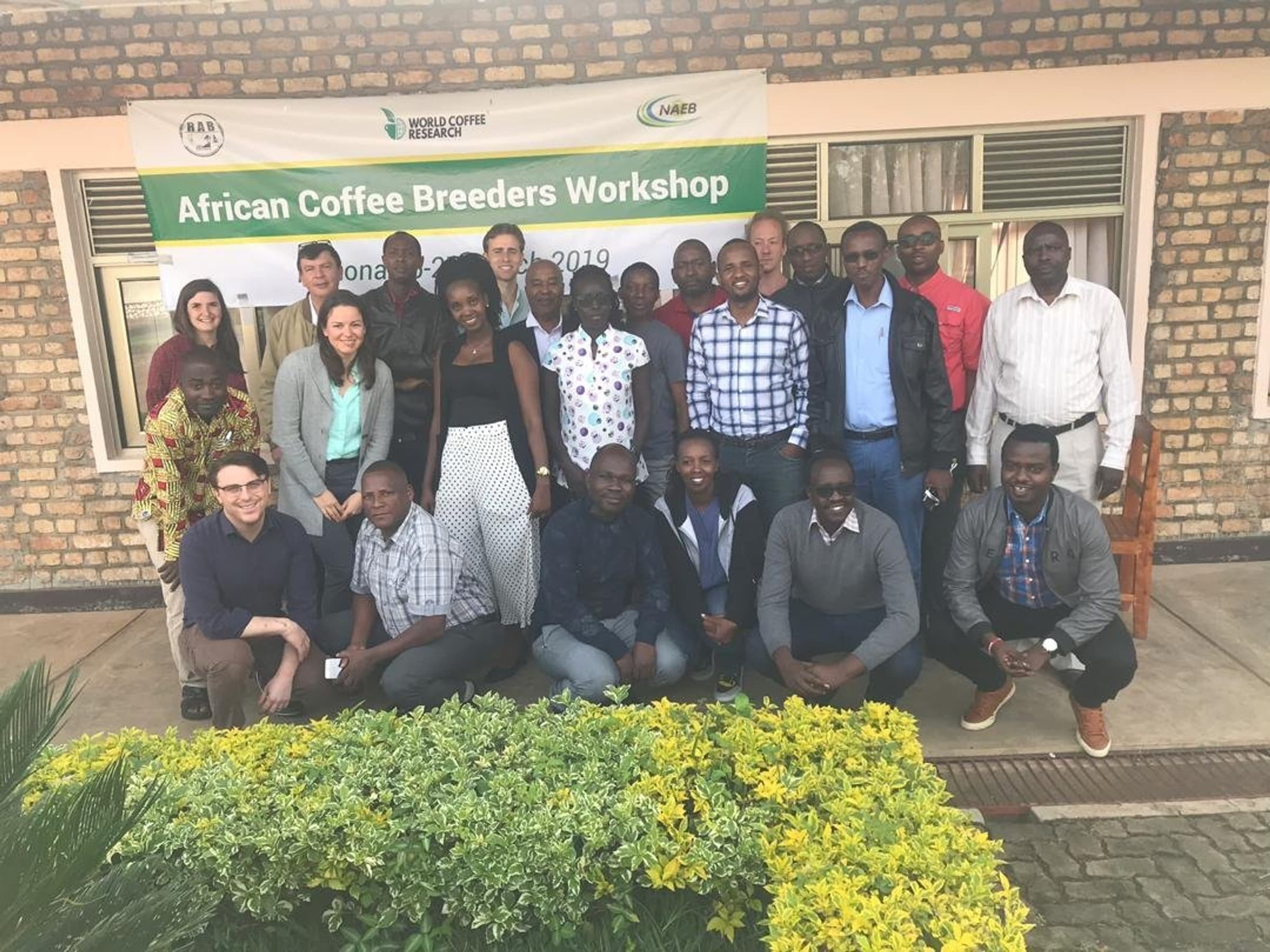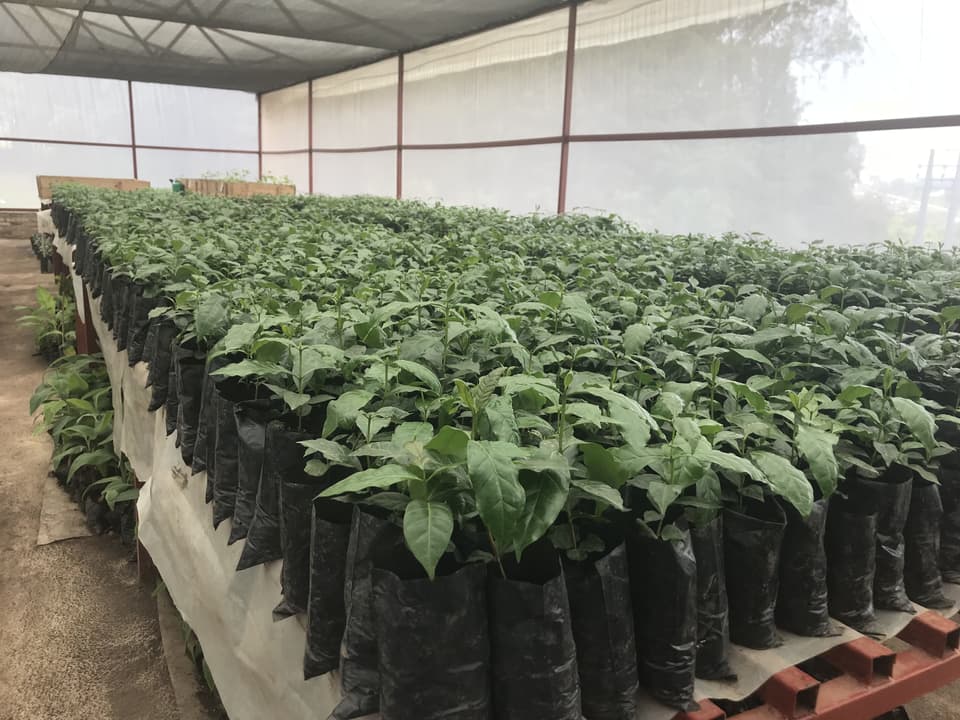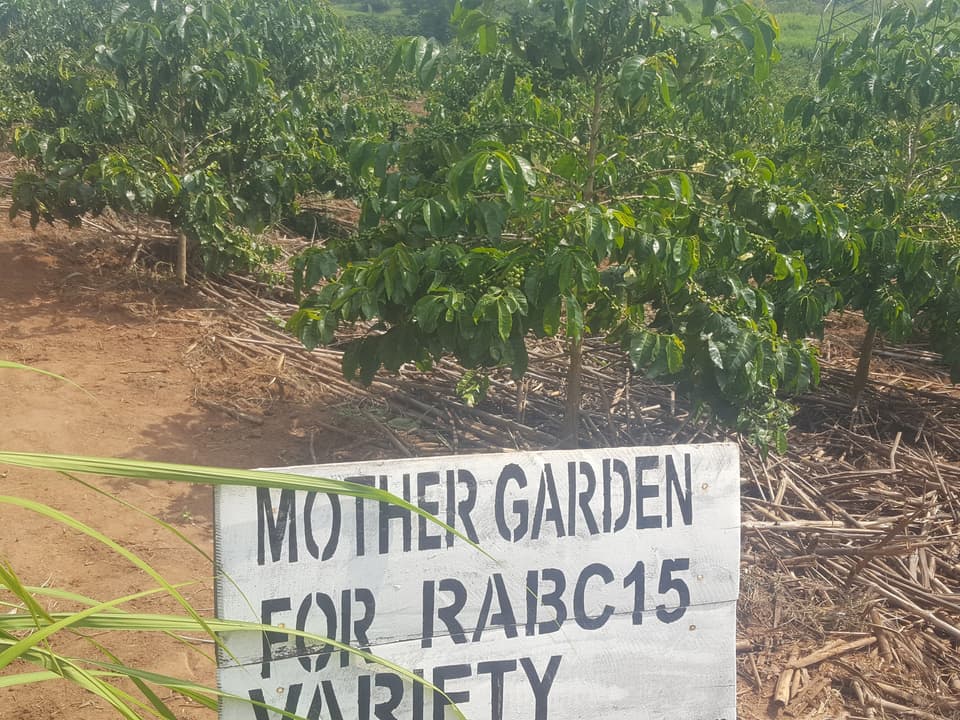New African coffee breeding hub hosts first breeders workshop
Stakeholders from throughout Africa gathered in Rwanda for the first meeting of its kind driving breeding efforts to benefit the continent’s coffee industry.

Participants of the workshop with Pascal Gakwaya Kalisa, Dr. Lucile Toniutti, Dr. Christophe Montagnon and Sylvain Roulain.
This spring, WCR and RAB were very excited to organize the first breeders’ workshop of the African Coffee breeding hub. While collaborative efforts like this centered around coffee breeding have taken place in other coffee-producing regions—including through Promecafe in Central America—the African breeding hub is the first nation-spanning coffee-breeding effort in Africa, and the breeders workshop was the first meeting gathering interested participating countries.
“We must have innovation in coffee agriculture to support farmers through the challenges ahead,” says Christophe Montagnon, Chief Science Officer of World Coffee Research. “A rapid expansion of the capacity to create new varieties to meet those challenges is just what is needed. It is so exciting to see countries coming together like this.”
“It was a tremendous success story to have such a great number of coffee breeders to come together and discuss the common future of coffee breeding in Africa,” says Simon Martin Mvuyekure, a Ph.D. breeder at the RAB and the breeding hub coordinator.
Taking place March 26-27 at RAB’s Rubona Research Station in Rwanda’s Southern Province, the workshop brought together representatives from government and research institutions from a wide range of African countries, as well as from many private-sector companies. Among the workshop’s goals were understanding the breeding tools, technologies, and opportunities offered to African coffee breeders through the regional breeding hub, aligning the breeding objectives and prioritized activities, and establishing an action plan for the hub’s operation.
The country organizations represented at the workshop were RAB’s Coffee Research Sub-Programme and the National Agricultural Export Development Board from Rwanda; the Tanzania Coffee Research Institute of Tanzania; the Kenya Agriculture and Livestock Research Organization (KALRO) from Kenya; the Lunyangwa Agricultural Research Station of Malawi; the National Agricultural Research Organisation/National Coffee Research Institute from Uganda; the Institut des Sciences Agronomiques du Burundi from Burundi; the Coffee Research Institute, Chipinge of Zimbabwe; and the Institut National pour l’Etude et la Recherche Agronomique from the Democratic Republic of Congo.

Some of the many plantlets develivered to WCR's Rwandan Breeding hub as part of the IMLVT
Additional participants included private-sector companies and NGOs: TWIN; Sustainable Growers; Rogers Family Company; Starbucks; Rwanda Trading Company; Japanese International Cooperation Agency; Dormans Coffee; Kawahatu; and the Conflict and Development Foundation.
The first day of the workshop, breeding experts and government representatives provided an overview of coffee-breeding work that is currently underway across each country in Africa. The second day focused on operations of the breeding hub, with a steering committee established to guide the hub going forward. Working groups were established to tackle four main areas of focus: determining breeding objectives (what types of varieties will be created?); interfacing with the seed sector (how will varieties be commercialized?); breeding programs (how will varieties be tested and evaluated?) ; and breeders’ rights (how will intellectual property be handled?). The working groups will now create concept notes on how the hub can address each topic. The papers will be considered for the breeding hub’s annual plan and budget, which will be drafted in 2020.
The workshop’s participants were very pleased with the knowledge-sharing opportunities and organization for the hub’s future that took place over the two days. Jane Cheserk of KALRO in Kenya, the designated chairperson of the steering committee, said it was important to have all the stakeholders together to align on how to best make use of the hub’s innovations. "The engagement of stakeholders in the coffee industry is important to identify needs and gaps to be filled up with developing the right varieties needed to meet the producer, market, and consumer demands,” she says.

Part of the Rwanda Core Collection
Jane adds that the breeding hub will be a difference-maker for the continent—and KALRO is excited to put its work to use in Kenya. “The creation of the breeding hub will take the research of Arabica coffee into another level in Africa,” she says. “The collaboration will enhance the breeding and development of new varieties that are accepted by the farmers and also within the coffee value chain.”
The participating private companies were also pleased at the progress made at the workshop, and are eager to see the hub’s progress passed on to farmers. “This was the most interesting coffee research and collaboration meeting I’ve attended," said Mario Serracin, a Rwanda-based plant pathologist and coffee agronomist for Rogers Family Company. "The collaborative and pre-competitive nature of the workshop was refreshing, as all participants were working toward a common goal: Using science to help millions of smallholders with varieties that are better-tasting, higher-yield, and able to withstand disease and climate change.”
WCR looks forward to continuing bringing together this diverse group of stakeholders on a regular basis to help guide and amplify the progress being made at the African breeding hub.